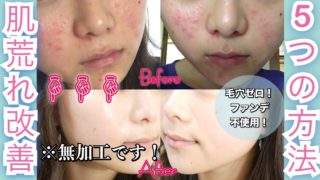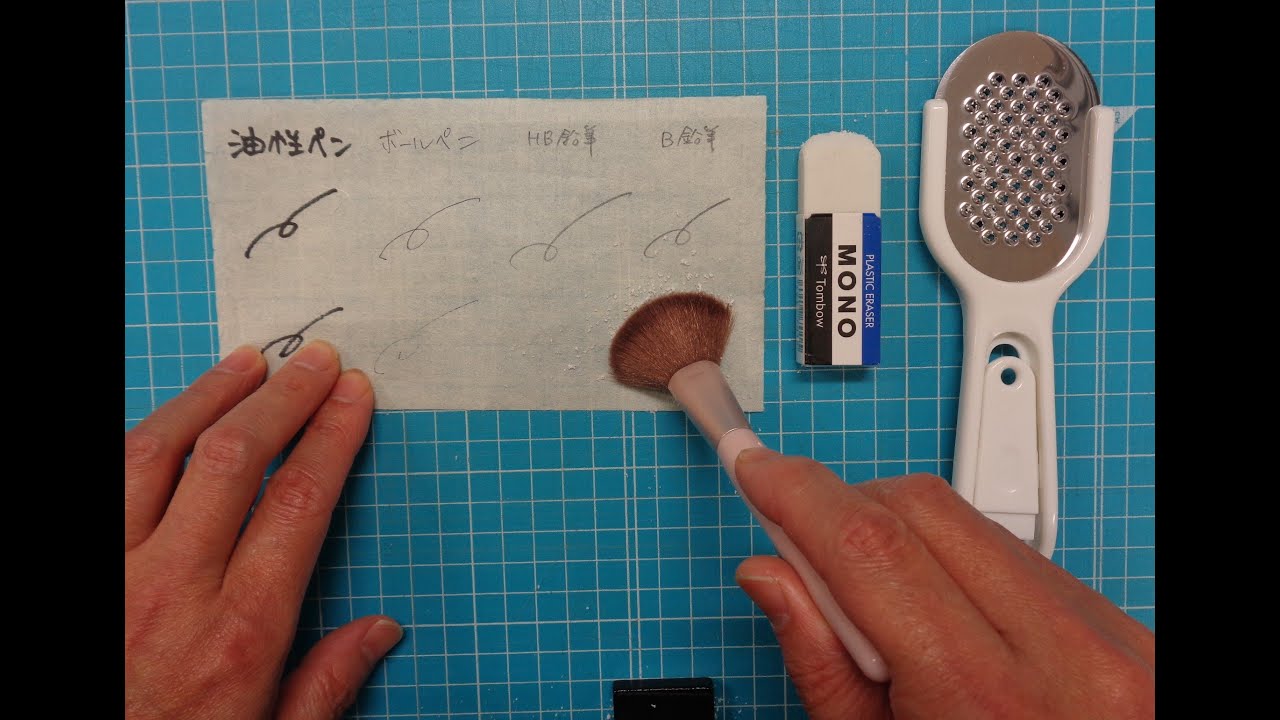プラスチック消しゴムをおろし金で削り、その粉を汚れた資料の上に乗せ、その上から毛先の柔らかいブラシでなでるようにして、鉛筆による汚れを落とす方法を紹介しています。
比較として、油性ペンやボールペンの汚れが取れるかどうかも試していますが、できませんでした。一度和紙についたインクは、繊維に染み込みますので、紙の表面を削ったり、ゴムに汚れを吸着させる仕組みの消しゴムだけでは、物理的には汚れを消すことが出来ません。だから、古文書類を調査する際にはペン類を持たないようにと言われています。
普通の洋紙に書かれた文字を消すように和紙をゴシゴシと強くこすると、和紙が破れてしまいます。万が一和紙に鉛筆汚れがついた場合は、動画で紹介した方法をお試しください。ただし、結局は和紙の表面をこすることになりますので、やりすぎて紙を破かないようご注意ください。
泥汚れについても同様で、和紙表面にはこの方法でも効果がありますが、繊維の内側まで染み込んだ泥汚れは、こするだけでは取ることは出来ません。
#水害時の応急処置対応
汚水や泥をかぶった資料に関するご相談は下記歴史資料ネットワーク(事務局:神戸大学文学部内)まで。
http://siryo-net.jp/
It shows how to remove pencil stains by grinding a plastic eraser with a grater, placing the powder on the stained material, and then dabbing it with a soft bristle brush.
As a comparison, we also tried to see if it would remove stains from oil-based pens and ballpoint pens, but were unable to do so. Once the ink is on the Japanese paper, it soaks into the fibers, so it is not possible to physically remove the stain by just scraping the surface of the paper or using an eraser, which works by absorbing the stain into the rubber. That is why we are told not to carry pens when examining ancient documents.
If you scrub the Japanese paper hard enough to erase letters written on ordinary paper, the paper will be torn. In the unlikely event that you get a pencil stain on your washi, please try the method described in the video. However, since you will end up scrubbing the surface of the washi, please be careful not to overdo it and tear the paper.
The same goes for mud stains. This method works on the surface of the washi, but mud stains that have soaked into the inside of the fibers cannot be removed by rubbing alone.
#First Aid Response to Flooding
If you have any questions about materials covered with sewage or mud, please contact the following ‘Siryo-net’ (Secretariat: in the Faculty of Letters, Kobe University).
http://siryo-net.jp/














コメント